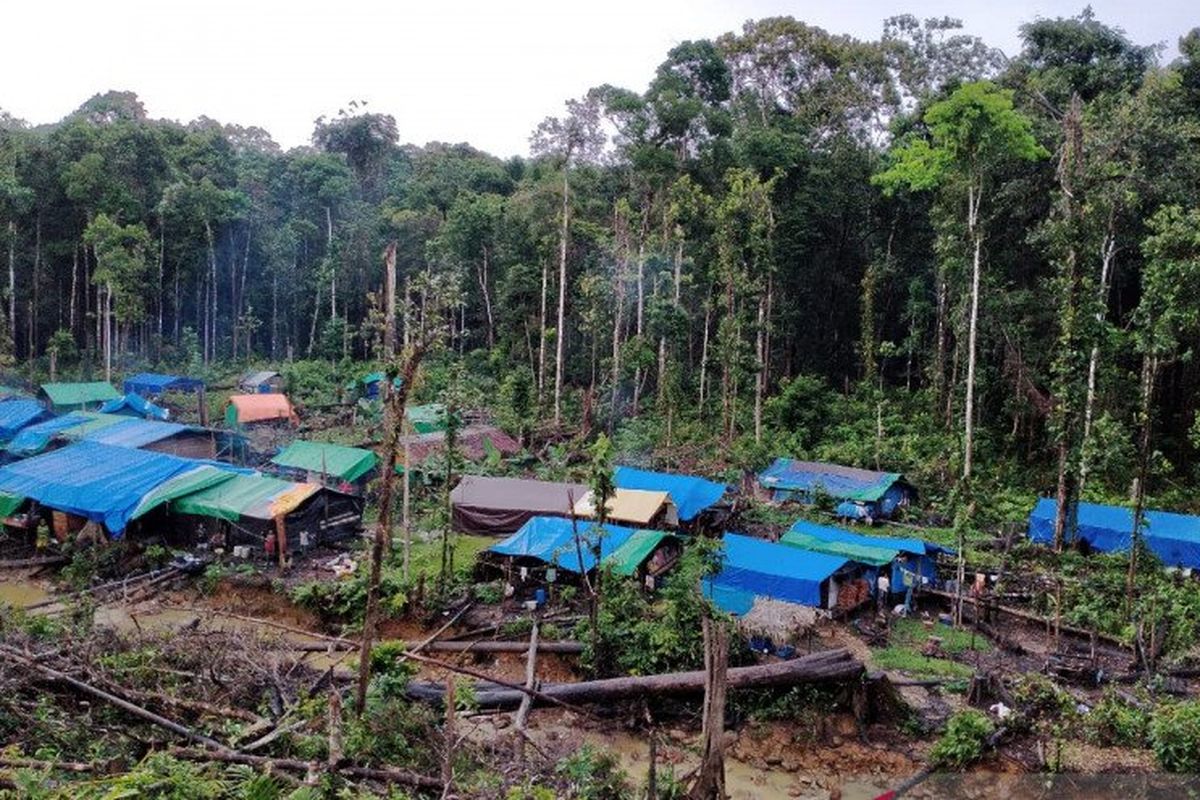In Uplands of Indonesia’s Papua, 10Kg Rice Sells for Cost of 4 Grams of Gold

KOMPAS.com – A 10-kilogram bag of rice costs $138 or the equivalent of four grams of gold in the remote uplands of Papua Province, home to the Korowai tribe.
Villagers are blessed with access to traditional gold mining sites, but their location near the heart of the rainforest is off the country's transport grid, and leaves them vulnerable to sky-high prices of basic necessities, said Indonesia's state news agency Antara on Wednesday, July 1.
The fastest way to reach their villages in Pegunungan Bintang Regency, which is close to the border with Papua New Guinea, is by taking a one-hour helicopter ride from Boven Digoel Regency.
Another option is to take a one-day logboat trip from Boven Digoel and continue to walk for two days to the traditional mining sites in Korowai. Pegunungan Bintang is surrounded by four regencies: Yakuhimo, Asmat, Boven Digoel, and Mappi.
In the traditional mining area known as Maining 33 in Kawinggon District, a 10-kilogram bag of rice sells for two million rupiahs ($138).
“A 10-kilogram bag of rice equals four grams of gold," Antara quoted Hengki Yaluwo as saying. "If it is bought with money, it will cost two million rupiahs.”
Also read: Indonesia Provides Temporary Shelter to 99 Rohingya Refugees in Aceh
This is the going rate as well at dozen other traditional mining sites in Korowai, said Hengki, one of the leaders of Kawe Senggaup Maining Cooperative.
Other staple food items also retail at exorbitant prices. One carton of 40 packs of instant noodles sells for one million rupiahs ($69).
“In the course of exchange, one carton of instant noodles equal to two grams of gold. One carton of instant noodles sell for one million rupiahs, while a pack of instant noodle will cost 25,000 rupiahs,” he said.
A large-sized of canned fish sells for 150,000. A mobile phone can be had in exchange for 10 grams to 25 grams of gold, depending on the brand.
Also read: Indonesian President Withdraws Appeal on Court Verdict on Internet Ban in Papua
Chief source of income
The traditional gold mining activity plays a very important role in the Korowai community whose villages are still isolated and untouched by economic development. One of the miners in Kali Dairam Village, Ben Yarik, said that Korowai tribe were the native people of the area.
“For years, the government has never taken the development of Korowai. God has provided us with gold, so we can do mining activity that will benefit us,” Ben said.
As traditional gold mining is the main source of income and supporting the economic activity of the surrounding communities, he said he hoped that the government will not shut down the mining sites.
“It’s sad that many people here are not getting enough attention and left behind. [But thankfully] there is gold that still benefits us,” he said.
(Editor: Dheri Agriesta)
Simak breaking news dan berita pilihan kami langsung di ponselmu. Pilih saluran andalanmu akses berita Kompas.com WhatsApp Channel : https://www.whatsapp.com/channel/0029VaFPbedBPzjZrk13HO3D. Pastikan kamu sudah install aplikasi WhatsApp ya.






























